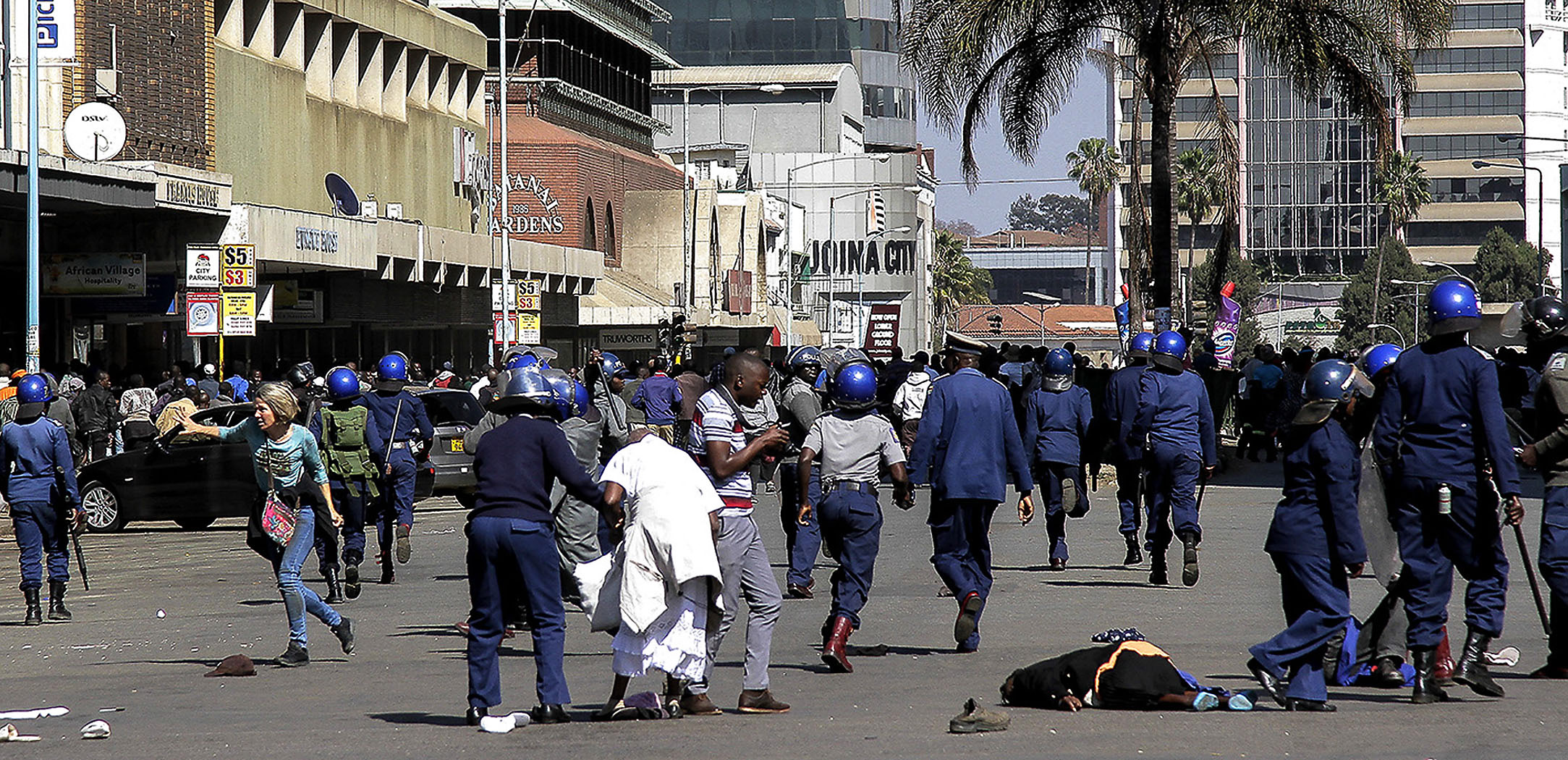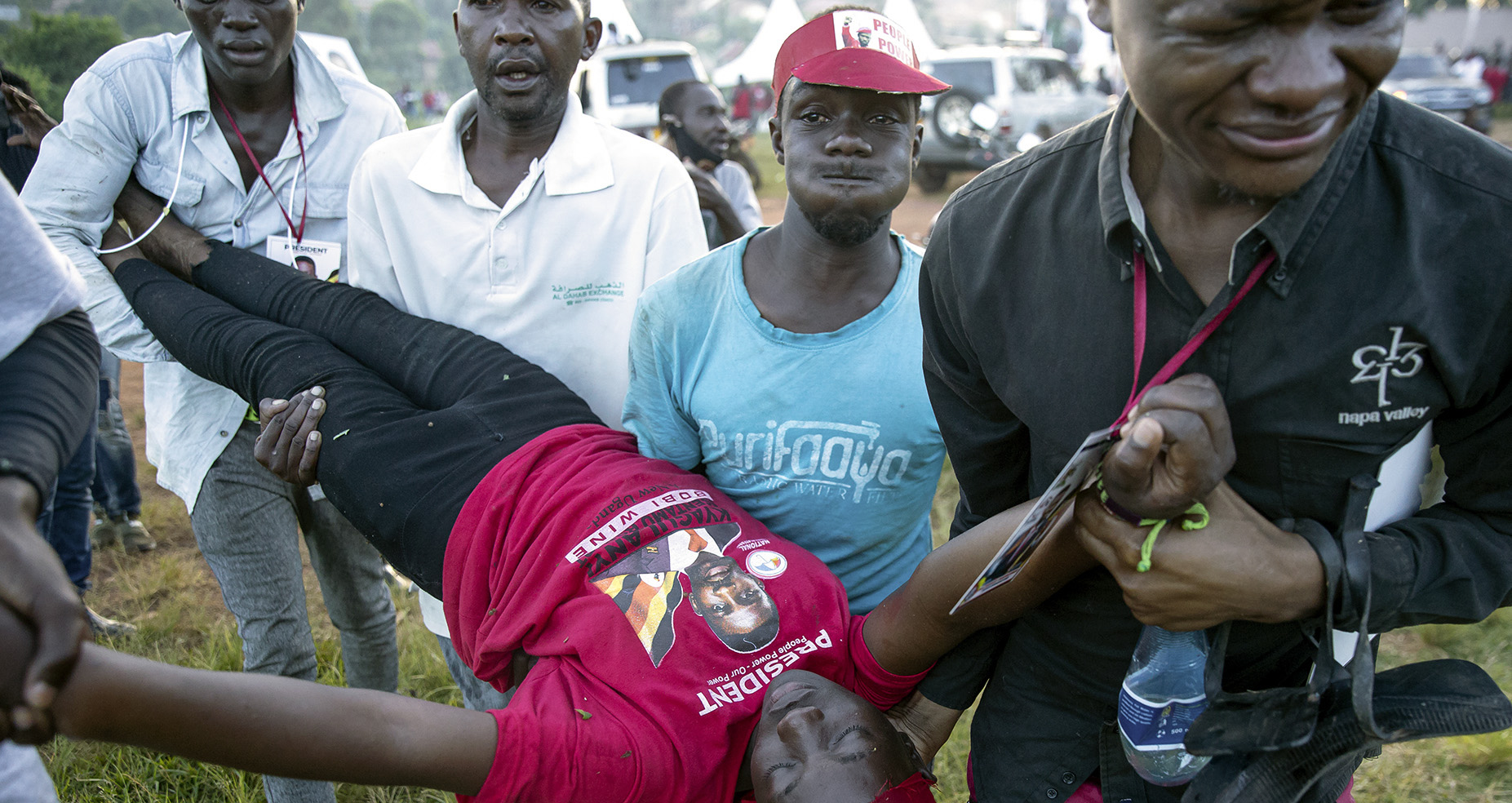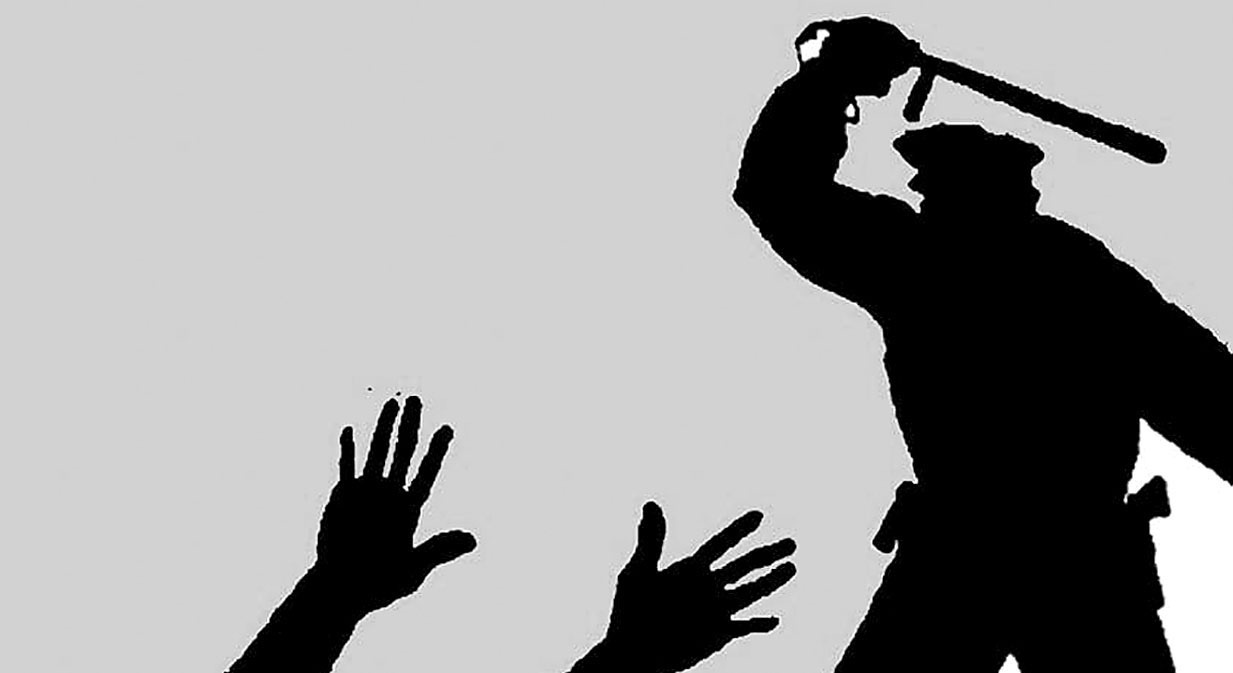On 26 June the world commemorated the International Day in Support of Victims of Torture. The prohibition of torture is enshrined in many international and regional human rights instruments, particularly the Convention against Torture and Other Cruel, Inhuman or Degrading Treatment or Punishment. Article 5 of the African Charter on Human and Peoples’ Rights states:
“All forms of exploitation and degradation of man, particularly slavery, slave trade, torture, cruel, inhuman or degrading punishment and treatment, shall be prohibited.”
Yet across the world torture is still a weapon of choice against dissent, practised during and outside legal detention as well as outside the state’s purview. In June 2020, the UN Committe Against Torture and other UN committees jointly warned that the Covid-19 pandemic was leading to an escalation of torture and ill-treatment worldwide, and that torture victims “may also lack the living conditions that allow them to guard against the spread of the virus”.
Despite that warning there is increasing evidence that Covid-19 has exacerbated the risk of ill-treatment and torture in Africa. Security authorities are silencing human rights defenders and civilians under the guise of “curbing the spread of the virus”.
In this article we look at some of the countries guilty of resorting to torture.
 Injured demonstrators lie in the street as a protest is driven back by riot police in 2019 in Harare, Zimbabwe. (Photo: Tafadzwa Ufumeli / Getty Images)
Injured demonstrators lie in the street as a protest is driven back by riot police in 2019 in Harare, Zimbabwe. (Photo: Tafadzwa Ufumeli / Getty Images)
Zimbabwe continues to use torture to silence dissent. Due to the conflation of the state with the ruling party, authorities are notorious for unleashing the state security apparatus, as well as party activists – mainly young people and war veterans.
In May 2020, three young female leaders from the Movement for Democratic Change Alliance – Joanna Mamombe, Cecilia Chimbiri and Netsai Marova – disappeared after being detained by police on allegations of involvement in an unsanctioned anti-government protest. The trio revealed gory details of the torture and sexual abuse they suffered at the hands of state security agents, including gun barrels shoved into their private parts. Their abusers remain unidentified and walk the streets free and with impunity.
Instead, it is the three young leaders who have suffered repeated violations, being accused of faking the abduction and being detained repeatedly, often for long periods, without bail at Chikurubi Maximum Security Prison. They have been under a persistent climate of torture and uncertainty since then.
A 22-year-old journalism student, Tawanda Muchehiwa, was also abducted and severely tortured by close to 20 men on the morning of 30 July 2020. Like the renowned investigative journalist Hopewell Chin’ono and opposition leader Jacob Ngarivhume, Muchehiwa was targeted for his “involvement” in coordinating the 31 July anti-government protests.
His abduction was caught on CCTV footage and there is impeccable evidence connecting the abduction to a vehicle hired from a private company, Impala Car Rental, which has outlets across southern Africa.
The abductors and Impala Car Rental remain unaccountable. Instead it is innocent young leaders such as Makomborero Haruzivishe, Takudzwa Ngadziore and Nancy Njege who have been beaten, assaulted, abducted and arbitrarily arrested and detained for demanding justice against Impala Car Rental and Muchehiwa’s abductors.
In a move calculated to circumvent any international censure, rights groups in Zimbabwe say the government is targeting critics with a planned amendment to criminal law by introducing the Patriotism Bill. The new law would, among other things, make it illegal for Zimbabweans to have “unauthorised” communications with foreign governments or to make unsubstantiated claims of torture or abduction.
To complement such repressive legislation the various provincial administrators have also been issuing letters demanding that civil society produce a memorandum of understanding for any work they do in the communities, failing which their work will be stopped. These illegal administrative actions that are not backed by any statute are seen as a means to prevent effective monitoring of the serial use of organised violence and torture as instruments of control over civic space in Zimbabwe.
 King Mswati of Eswatini. (Photo: Daniel Acker / Bloomberg via Getty Images)
King Mswati of Eswatini. (Photo: Daniel Acker / Bloomberg via Getty Images)
Meanwhile, pressure is mounting on the government of Eswatini and the Southern African Development Community to urgently intervene and help address the situation there. The political and security crisis has been going on for months following the death of Thabani Nkomonye, a law student at the University of Swaziland, allegedly at the hands of the police in May 2021.
Although authorities say they initiated an investigation into the killing, the 24 June decree by King Mswati III banning citizens from sending petitions to parliamentarians to demand democratic reforms, marked an unprecedented escalation of protests. Protesters also accused the royal family, including the king’s 15 wives, of enjoying a lavish, publicly funded lifestyle while the majority of the country’s 1.1 million people live in poverty.
According to reports, the government’s response has led to further human rights abuses (see Maverick Citizen’s report here). The authorities responded by imposing an internet blackout, banning protests and deploying soldiers and the police to disperse protesters. The national police commissioner, William Dlamini, warned there would be “zero-tolerance” for breaches of the ban.
Up to 80 people were killed by state security forces during the protests and hundreds were admitted to hospital with injuries including wounds from live ammunition fired by the police.
The situation is degenerating into a humanitarian crisis as well. Insecurity has disrupted markets, as business owners closed their premises, leaving people with no food and more vulnerable to contracting Covid-19 as they queue for groceries in the few shops that are open.
Despite Eswatini being a signatory to the International Covenant on Civil and Political Rights and the Convention against Torture and Other Cruel, Inhuman or Degrading Treatment or Punishment, police and army brutality in the country has been going on for years.
In March, Human Rights Watch warned of a “drastic deterioration” in human rights in the country. In a report submitted to the United Nations’ Universal Periodic Review of Eswatini, Human Rights Watch detailed how there had been no progress on essential rights reforms, including the removal of all legislative and practical restrictions on the free exercise of civil and political rights, in particular those related to freedom of association and expression to allow the registration and operation of political parties; nor on introducing greater political freedoms through free, fair and transparent democratic elections.
Elections and torture
Incidents of torture normally coincide with elections when the political contest is at its fiercest.
In Tanzania, state security forces killed at least 22 people, while at least 77 opposition leaders and supporters were arbitrarily detained and tortured between 28 October (general election date) and 11 November 2020.
Several opposition party supporters and party leaders were severely assaulted by police while being interrogated for disputing the election results. Security forces used indiscriminate and excessive force, including live ammunition, to disperse protesters. According to Amnesty International, security forces also used torture to extract “confessions” from the victims.
 An injured supporter of Robert Kyagulanyi Ssentamu, otherwise known as Bobi Wine, is carried away during his presidential campaign in Kampala, Uganda. (Photo: EPA-EFE / STR)
An injured supporter of Robert Kyagulanyi Ssentamu, otherwise known as Bobi Wine, is carried away during his presidential campaign in Kampala, Uganda. (Photo: EPA-EFE / STR)
In power in Uganda since 1986, Yoweri Museveni has been widely accused of using security forces to suppress opposition to his rule. While campaigning for political change and “people power”, opposition leader Robert Kyagulanyi, popularly known as Bobi Wine, suffered massive police brutality before, during and after the 14 January 2021 general election. Even before Bobi Wine had announced his intention to contest for the presidency, he was tortured and assaulted many times as one of the new cohort of young and outspoken opposition members of parliament. When the leader of the opposition himself can be so inhumanely treated, we can expect the worst to visit their vulnerable supporters.
More than 600 opposition members reportedly suffered systematic torture and detention in harsh conditions, often in secret prisons, and were denied access to relatives or lawyers. Some detainees had joints or genitals beaten with wires or burnt with cigarettes, or had fingernails torn out. Others were shot in the legs or even killed during the campaign period.
On 19 April 2020, police arrested and later beat parliamentarian Francis Zaake for distributing food to the public as part of Covid-19 relief in Mityana. Police held him for several days at the Special Investigations Unit in Kireka, Kampala, but released him on bond on 27 April. Zaake accused police and military officers of torturing him while he was in detention.
Torture in prisons and places of detention:
Perhaps more frightening is that much of this torture takes place inside official law enforcement institutions like prisons, at the hands of law enforcement officers.
Although torture is outlawed in Lesotho, reports suggest that police continue to torture suspects and subject them to cruel, inhuman or degrading treatment or punishment.
In its 2020 Country Reports on Human Rights Practices, the US Bureau of Democracy, Human Rights and Labor noted that there were worrying reports of torture in Lesotho.
Numerous abuses were noted. On 8 July 2020, the Moafrika Community Broadcasting Service reported that Mabote police officers tortured Lesotho Mounted Police Service Special Operations Unit member Lebusa Setlojoane and his relative, Lefu Setlojoane, with electrical shocks and suffocation to force him to confess to committing arson and homicide. Setlojoane said he was threatened with death if he reported the abuse to judicial authorities.
While torture is also illegal in Nigeria, images from social media show that a particular form of torture, known as “tabay”, is widely used in the interrogation and punishment of detainees, including children.
Torture has killed more people than Covid-19 in Nigeria and by early April 2021 more people had died as a result of lockdown enforcement measures by security forces than from Covid-19.
Although Malawi’s constitution prohibits the use of torture or cruel, inhuman and degrading treatment or punishment, in a 2020 report by the Malawi Human Rights Commission the police were accused of using excessive force and other unlawful practices, including torture, to extract confessions from suspects. The police have also been accused of demanding sexual favours from sex workers under threat of arrest.
In the report, the commission stated that torture was widespread in prisons. In February 2019, a man identified as Buleya Lule died in police custody in Lilongwe, just hours after appearing in court as one of six suspects in the abduction of Goodson Makanjira, a 14-year-old boy with albinism. Upon further investigation it emerged that Lule had been tortured to death.
Torture in the form of starvation has also been rampant in Malawi. A 2018 study revealed that virtually all prisoners are food insecure and subsist on only one meal a day. Over the years it has often been reported that prisoners go for days, even weeks without food when procurement, cooking or electricity problems strike. The situation remains unresolved. In a report published by BMC Public Health in April 2021 it was noted that one of the main challenges affecting HIV-positive inmates was poor diet such as having one meal per day and sometimes no meal at all.
In Zambia in 2019 the Human Rights Commission said it remained deeply concerned that perpetrators of torture continued to be charged with lesser offences of assault owing to the absence of a law criminalising torture. The commission urged the government to speed up the process of enacting this law to provide appropriate punishment to perpetrators and remedies to victims.
The issue is still pending, while torture continues unabated. Amnesty International says Zambia is on “the brink of a human rights crisis”, alleging that President Edgar Lungu is using repressive tactics to win another term in elections set for 12 August. In a report, “Ruling by fear and repression”, published on 28 June, the organisation detailed how the rights to freedom of expression and peaceful assembly have come under increasing attack, particularly in the past five years, with opposition leaders and activists jailed, independent media outlets shut down, and at least five people killed by police since 2016.
Torture in ‘ungoverned spaces’ and non-state actors
Torture also occurs outside the view of state authorities, in ungoverned spaces.
Mozambique has been battling militants in the Cabo Delgado region for more than two years. It turns out that atrocities and many forms of torture are being perpetrated not only by the militants (al-Shabaab), but government forces as well, including private military contractors (in particular the Dyck Advisory Group).
In a report issued in March 2021, Amnesty International revealed that hundreds of civilians in Mozambique have been unlawfully killed by “al-Shabaab”. The military and police have also committed extrajudicial executions and acts of torture and other ill-treatment, and have mutilated bodies. Some of the victims were blindfolded and shot before being dumped in mass graves, while women were raped.
In September 2020, footage emerged of Mozambique’s security forces torturing and abusing militants. The advocacy group has called for independent investigations, but the spokesperson for Mozambique’s defence ministry says the videos shouldn’t be taken seriously.
Conclusion
Ironically, most national constitutions across Africa expressly outlaw torture in conformity with international human rights law and the relevant conventions that state parties are signatories to. However, the stark difference between what’s in the statute books and the realities on the ground could not be more astounding: torture is still pervasive, perpetrated mainly by the state or its agents.
UN Secretary-General António Guterres has stressed again that impunity and a lack of justice for torture victims must end. The fight against torture must go on and be escalated:
“Torturers must never be allowed to get away with their crimes, and systems that enable torture should be dismantled or transformed.”
African states are therefore encouraged to not only enact legislation criminalising torture, but to prevent torture through education on human rights, as well implement systems for monitoring acts of torture by the police, military and other sectors, and to ensure that where torture does occur it is prosecuted and punished through judicial systems. DM/MC
Arnold Tsunga is a human rights lawyer and the chairperson of the SAHRDN; Tatenda Mazarura is a Woman Human Rights Defender, a professional rapporteur and an election expert.
The Southern Africa Human Rights Roundup is aimed at highlighting important human rights news in southern Africa. It integrates efforts of human rights defenders and facilitates evidence-based engagement with key stakeholders and institutions on the human rights situation across the region.
The roundup is a collaboration between the Southern Africa Human Rights Defenders Network and Maverick Citizen.




 An injured supporter of Robert Kyagulanyi Ssentamu, otherwise known as Bobi Wine, is carried away during his presidential campaign in Kampala, Uganda. (Photo: EPA-EFE / STR)
An injured supporter of Robert Kyagulanyi Ssentamu, otherwise known as Bobi Wine, is carried away during his presidential campaign in Kampala, Uganda. (Photo: EPA-EFE / STR)